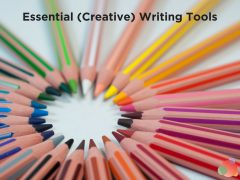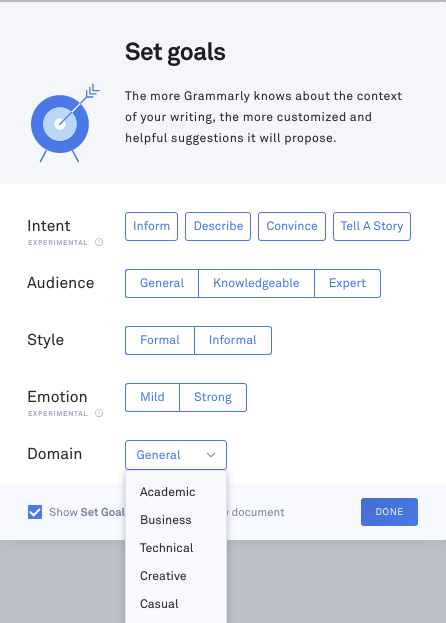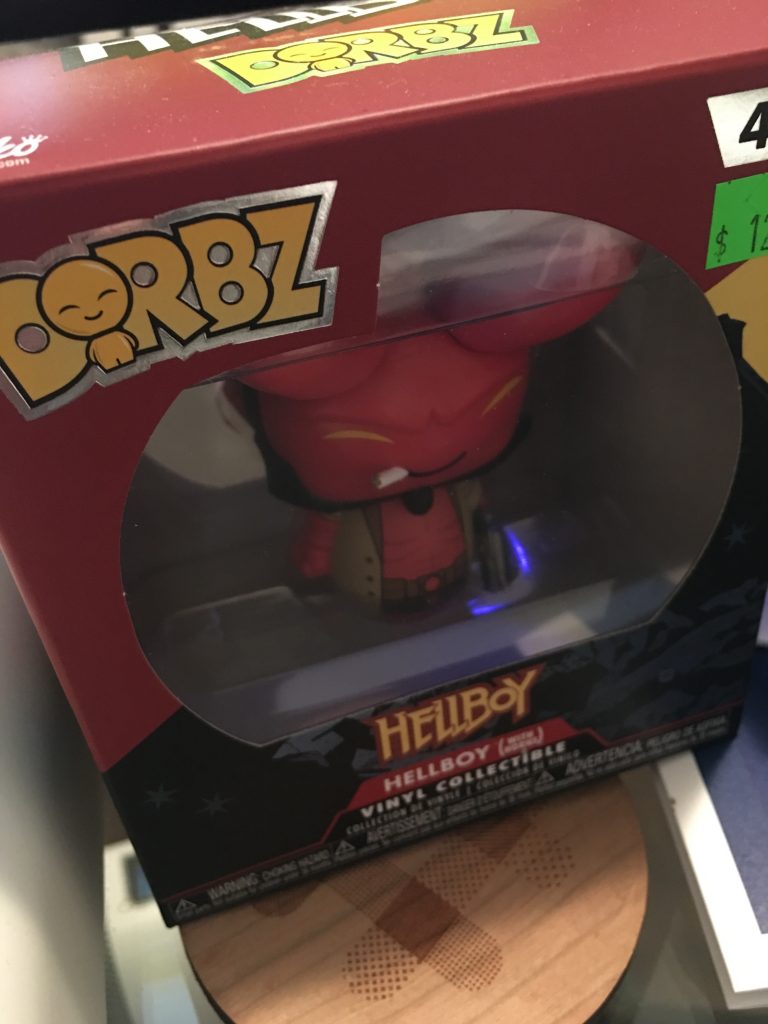 I was originally going to call this article “Essential Writing Tools for Communicators,” but I decided that this information is just too good to closet within one group.
I was originally going to call this article “Essential Writing Tools for Communicators,” but I decided that this information is just too good to closet within one group.
The whole world would benefit from this list, I said to myself.
And then I thought (also to myself—I’m my own best audience), perhaps it should be “Essential Creative Writing Tools.”
SEO implications aside, I was irked by the exclusionary feel of “creative.” These tools, and these thoughts aren’t just for creative writers.
So, “Essential Writing Tools.”
I’ve written before about how important writing is.
Not this kind of writing, although that’s important as well.
No, I’m talking about creative writing. Once-upon-a-time-type writing.
Creative writing is an exercise in self-discovery, organization, and, of course, creativity that can be pivotal in improving your other writing (blog posts, articles, research reports, case studies, business plans, etc.).
Regardless of how much writing you think you have to do in your particular professional role, you still need to develop, adapt, and constantly improve upon your writing voice and style.
Two people with the same references, resources, and context stand a strong chance of writing like-minded posts, but their unique voice and style will set them apart from each other.
– Some amazing writer (it was me).
The Case for Creativity
While I’m going to focus on why writing is so important and provide a list of tools to make your writing efforts easier, it is important to note that the goal is, ultimately, creativity.
Yes, as mentioned, writing, itself, is very important.
There are fundamental skills required for and developed from the writing process. That said, creativity is the goal.
Gini Dietrich emphasized that in her recent article making the business case for reading fiction.
Imagine if you have a communicator, a marketer, an SEO expert, and a copywriter sitting at a table.
They are asked to write a brand story using the same elements, but only one person at the table is a big fiction reader.
Who do you think tells the best brand story?
It’s the creative exercise, be it reading, creative writing or, ideally, both, that will win the day.
Let’s Get On With it Already
Got it? OK. Let’s assume that you now know how important creative writing is.
You are on board with the fact that it can help clarify your thoughts and emotions.
You’re behind the notion that it gives your imagination a boost (always important when we’re trying to come up with fun and interesting ways to engage audiences).
You’re comfortable with the fact that it improves your overall understanding of writing mechanics, and how readers engage with content.
Most importantly, because of the no-limits nature of creative writing (forget about word count, passive or active voice, style guides, SEO), you’re convinced that it builds confidence.
Let’s assume all that, so we can start talking about all the tools that make your writing habit easier and more effective.
Nine Essential(ish) Writing Tools
The top five are must-have writing tools, in my opinion. The final four are nice-to-haves.
- Physical writing tools
- Google Docs
- Grammarly
- Inspirational resources and, generally, fun sh*t
- Writing group and beta reader(s)
- Spotify (ish)
- Overcast (ish)
- Good over-ear headphones (ish)
- Otter Voice Notes (ish)
Physical Writing Tools
I’m a tech-savvy person. I love my computer, my devices, and all of the technology in my life.
That said, there’s a reason using an actual pen and paper at the start of your writing process is important.
Technology isn’t going away but neither should writing by hand.
Typing and texting are easier and more effective for certain types of writing and communication, but actually putting pen to paper triggers different parts of the brain. It makes it easier to remember what you’re writing down, and it forces you to think about what’s come before, and what’s going to come after.
This isn’t an argument for doing all of your writing by hand, rather it’s a recommendation to incorporate a pen-to-paper process into your writing.
Listing great ideas, outlining components of your prose, and even doodling really get the creative juices flowing for when it’s time to actually do some writing.
The tools you use aren’t overly important, however, I recommend you pick something you really like.
I have an amazing notebook I take everywhere with me. I use it for work, my creative writing, and life in general.
There is also a collection of fountain pens and ink around and on my desk at all times. Some are super expensive. Some I just really like a lot (my favorites include a Kaweco AL Sport, a TWSBI Mini Diamond Clear, and Noodler’s Ink: Eel Gruene Cactus).
The point is that I have an attachment to, and affinity for the tools I’m using, forcing me to take the process more seriously.
If you prefer to use a pencil, ballpoint pen, or yellow canary legal pads (I loved those in university!), all the power to you! As long as you enjoy and embrace putting pen to paper.
Google Docs
I used to love Microsoft Word. Well, “love” is a strong word. I use to rely on Word. A lot.
Regular use developed familiarity and ease, but I gather people who don’t use Word regularly don’t exactly love it. It’s not very intuitive, it takes up a lot of space on your system, and it’s a little behind the times. It still holds a place in my heart, but from a practical perspective… Google Docs was a game changer.
Don’t get me wrong: Use whatever word processor works best. One that you don’t have to think twice about. One that AUTOSAVES easily and regularly.
Use something that makes it easy to keep track of your versions, and that makes it easy for you share your material with others.
For me, that’s Google Docs.
Grammarly
 I know a lot of writers who take great pride in their grasp of grammar. Mine’s pretty solid, but I have to say I have no issue admitting I need Grammarly.
I know a lot of writers who take great pride in their grasp of grammar. Mine’s pretty solid, but I have to say I have no issue admitting I need Grammarly.
Not only does it check/confirm/correct many of the parts of speech I often take for granted, but they have a function that assesses your material and makes recommended adjustments based on the material’s intent (inform, describe, convince, tell a story), audience (general, knowledgeable, expert), style (formal, informal), emotion (mild, strong), and what they refer to as domain (general, academic, business, technical, creative, casual).
There’s even a browser add-on so that it can check ALL the writing you do (in WordPress, forms, email, etc.).
The only glitch is that it doesn’t work in Google Docs. The workaround (for me) is that I just cut-and-paste or upload the document into the Grammarly app, and get it to assess when I’m done or finished a stage/section of the material in question.
I’ve heard the Hemingway App is also amazing, if not better in some regards, but I haven’t tried it yet.
I’d love some feedback from any current or past users. Like Google Docs, it doesn’t matter quite so much which software you choose, just that you have something working with you in the background.
Ultimately, Grammarly is my safety net. I don’t always need it, because most of my creative writing is just that: Creative.
As a result, my work doesn’t (always) strictly follow traditional grammatical conventions.
In some cases, I may be trying to use a quirky dialect, or I’ll be writing too colloquially for Grammarly’s algorithms.
But I want it there in the background so it can catch all the other things before I get anyone to review it.
Inspirational Sources

My desk is a disaster. It would likely cause some of my colleagues (oh, hey Laura. What’s up, Gini?) great anxiety to see the general state of disarray it finds itself in from one day to the next.
A big reason for that is my need to reference a lot of, well, stuff.
All through high school and university, I had a copy of Bartlett’s Familiar Quotations on my desk. The internet has greatly reduced my need for the tome, but I have it to this day.
I’m also constantly collecting interesting reference material, like The Phantom Atlas: The Greatest Myths, Lies and Blunders on Maps.
Sometimes you just need to find some random quotations or require some inspiration for a plot twist or character background.
For instance, did you know that nine-foot giants were once thought to stalk the Patagonian Landscape? The Island of California was known to drift off the coast of North America?
It’s also helpful to have some generally fun sh*t around, just to make sure you’re in the right mood.
You could argue that these couldn’t possibly qualify as essential writing tools, but I’d strongly disagree. It’s important to have creative triggers surrounding you, and physical reference material is very helpful during those necessary unplugged periods when I’m trying to finish writing something.
Writing Group
A writing group is invaluable for anyone who needs some accountability, along with like-minded support.
Not everyone in your peer or professional groups will be the right audience for your material, and they may not even be interested in reading your work. And that’s ok.
It’s hard putting yourself out there, especially when it comes to experimenting creatively. But you absolutely need to let someone else read your material, and they have to be impartial and ready to tell it like it is.
In other words, your writing group shouldn’t include your significant other or a close family member. Shouldn’t. Not can’t. There are exceptions to every rule. In my case? My wife doesn’t really read fantasy, graphic novels, or like-minded fiction. She can appreciate it, and I think she could provide valuable feedback, but out of the gate, I need a beta reader and/or a writing group with a penchant for what I’m producing.
For some of you, this might seem like overkill, but I truly believe that to get better at anything, you need an outside perspective taking a look at what you’re doing and providing some feedback.
You don’t have to agree with what they’re saying. You don’t have to incorporate it. But you should at least pay attention to what they have to say, and use it to better understand how your writing is affecting a particular audience.
I belong to a Slack community called The Writing Cooperative. Not only can I get members to read my material, but there are always writing prompts and challenges running, focused on making sure you write something (anything) daily, weekly, or monthly.
Spotify, Overcast, and Over-Ear Headphones
These next three can be discussed collectively. They fall under the “essential (ish)” category because sometimes (most times) I really need to be distraction-free. No noise. No devices pinging or vibrating. Zero music or podcasts playing in the background.
But when I’m stuck, or not in the mood but know I have to get something down, it can really help to layer in some… ambiance.
I don’t have a particular Spotify playlist, but I will regularly tune in to their ’80s and ’90s playlists (don’t judge). If I’m trying to relax, I do like some classical piano or, one of my favorites: Icelandic sensation Sigur Ros.
Similarly, I love listening to podcasts. Cycling podcasts. Podcasts on writing. Comic book podcasts. Fantasy Football. I’m a little all over the map, but I love them, and they often really help when I’m brainstorming or doing research.
For the best listening experience, you need some great over-ear, noise-canceling headphones. I’m currently sporting a pair of Beats Studio 3 Wireless headphones.
Otter
This last one was a recent addition courtesy of Christopher Penn.
The Otter app came up, ironically, in a Spin Sucks Community discussion around unplugging.
Chris was expounding upon the idea that he never wants or needs to unplug or take a break from his work because he loves it so much.
As a result, he has numerous tools to streamline his content creation efforts. Like Otter.
It can transcribe voice calls in real time and it can transcribe my ramblings almost as quickly.
Why did this make my list of writing tools?
As I mentioned already, I’m a big believer in experimenting with your creative process. Writing by hand, typing, and now: voice-to-text.
Note: Google Docs has a voice typing tool (I just “wrote” this sentence using it), as do most word processors these days. Some are better than others (Google’s is pretty good, in my experience to date).
I typically don’t rely on or like to use voice-to-text, however, if I’m hand-writing something, or reading, say, my copy of The Phantom Atlas, it has proved very handy to have Google Voice Typing open and at-the-ready.
Otter, on the other hand, is very good. It almost never makes a mistake transcribing what I’m saying.
How do I use it? Sometimes, I like to read what I’ve written aloud in order to get a sense of how it flows. Does it sound too formal? Unnatural?
It’s why I love listening to audiobooks and podcasts so much: If someone can’t read the material well, or it doesn’t flow, that becomes VERY obvious when it’s read aloud.
As a result, I make a practice of dictating sections of whatever I’m working on. It may not affect how I’ve written something, or how I’ll write it, but it does make me think about the tone, the flow, the punctuation, and word choice.
Writing Tools: Your Favorites?
At the outset of this article, I knew that my list was a very personal one. As it should be.
The goal, though, was to convey how important the process is, and how establishing a creative writing habit will improve your “work” writing exponentially.
Tools and triggers have always worked for me, in this effort.
They aren’t static.
A week from now, I may have tried the Hemingway App, or followed Gini’s advice and started writing exclusively in WordPress (not going to happen).
I’ll have a new favorite fountain pen, much to my wife’s chagrin.
But it’s the habit that is important. It’s the creative writing that is essential, not the tools, admittedly, but they’re helpful and, in most cases, fun.
Let me know what your go-to creative writing tools, tips, and tricks are. I’d love to incorporate them into my routine.
Additionally, I’d also be very interested to know how many readers write creatively, in addition to their regular content efforts. I know it can be hard to fit it all in.
Hence the writing tools, right?
Leave your comments below, or join me in the Spin Sucks community and we can discuss there.
Photo by Olloweb Solutions on Unsplash